#TechnologyEthics
Explore tagged Tumblr posts
Link
https://bit.ly/4a7KSIz - 🔒 The UK's Information Commissioner's Office (ICO) has mandated Serco to halt the use of biometric technology, including facial recognition and fingerprint scanning, at 38 leisure facilities it operates. This action comes after an investigation revealed that over 2,000 employees' biometric data were processed unlawfully for attendance and payroll purposes, with no option for staff to opt-out, highlighting a significant power imbalance. #DataProtection #EmployeeRights #BiometricData 🚫 UK Information Commissioner John Edwards criticized Serco Leisure for not adequately assessing the risks associated with biometric technology, emphasizing the irreversibility of biometric data versus traditional passwords. The ICO's directive includes the destruction of all unlawfully retained biometric data within three months, underlining the importance of privacy over business interests. #PrivacyRights #TechnologyEthics #WorkplaceSurveillance 🛑 Highlighting the issue's gravity, the enforcement notice affects not only Serco Leisure but also Serco Jersey and seven other community leisure trusts. These entities, known for their extensive involvement in various public service contracts, including pandemic response and criminal tagging, are now under scrutiny for their handling of sensitive employee data. #PublicTrust #CorporateAccountability #BiometricSurveillance 📚 In response to these findings, the ICO has issued new guidance for organizations on the legal and ethical use of biometric data. This aims to ensure that entities like Serco consider the potential risks and biases associated with biometric technology, promoting a more responsible and lawful approach to data management.
#DataProtection#EmployeeRights#BiometricData#PrivacyRights#TechnologyEthics#WorkplaceSurveillance#PublicTrust#CorporateAccountability#BiometricSurveillance#EthicalTech#DataGuidance#OrganizationalResponsibility#serco#threemonths#informationcommissioner#technology#recognition#facilities#data#staff
0 notes
Text
youtube
#AIandEthics#MoralQuandaries#ArtificialIntelligence#EthicalAI#TechnologyEthics#AIResponsibility#BiasInAI#FairnessInAI#AIandSociety#PrivacyConcerns#HumanValues#EthicalChallenges#AIAdvancements#ResponsibleAI#AIImpact#EmploymentImplications#Youtube
0 notes
Text
"The Rise of Explainable AI: Illuminating the Black Box of Algorithms"
In the ever-expanding realm of artificial intelligence, the concept of Explainable AI (XAI) is gaining prominence as a crucial development. Often dubbed the “black box” problem, the lack of transparency in AI algorithms has raised concerns about their decision-making processes. Explainable AI emerges as a solution, shedding light on the inner workings of these sophisticated systems. Unveiling…
View On WordPress
0 notes
Photo
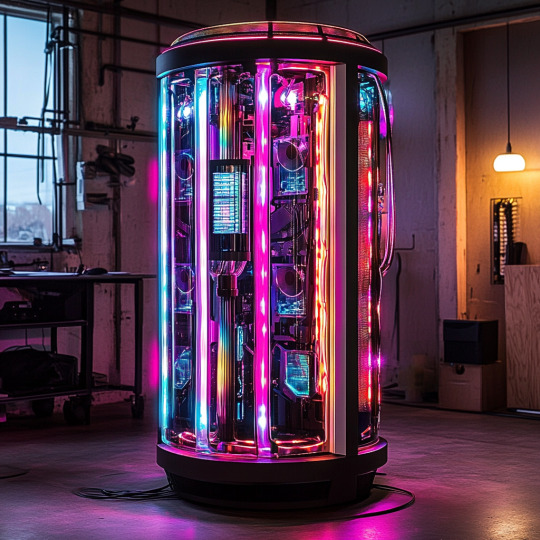
🛑 Did you know the UK has banned game controller sales to Russia? In a bid to thwart their use in drone attacks for the Ukraine conflict, British companies are restricted from exporting these devices. The UK aims to cut Russia off from innovative tech and close gaps exploited by influential figures. But how impactful will this ban be with Russia's ability to manufacture their own controllers? 💡 Controllers, initially designed for gaming, are now a focal point in international policy. With export bans in place, the spotlight is on tech’s role in modern warfare. This highlights both the versatile use of technology and the complexities around its global distribution. Could tech restrictions like these significantly affect conflict outcomes, or will they push countries to develop similar tech domestically? 🔍 #TechPolicy #DroneWarfare #GamingControllers #UKRussiaBan #InnovationBlockade #PCGamer #GlobalSecurity #TechnologyEthics #UkraineConflict Engage with us: What are your thoughts on the intersection of gaming technology and military applications? 💬
0 notes
Text
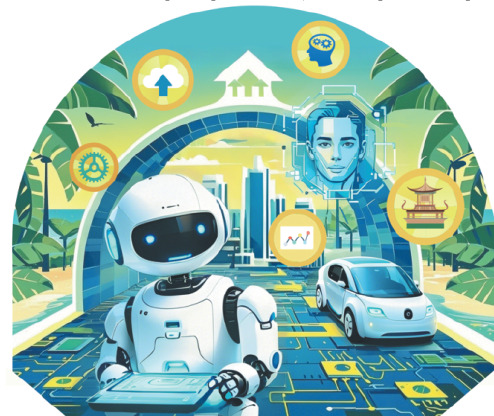
Does AI pose a threat to sustainable development?
The 2025 World Economic Forum, being held in Davos from Monday to Friday under the theme "Collaboration for the Intelligent Age", is expected to foster a spirit of cooperation and optimism in the digital age in a more sustainable way, despite the different positions of the participants and global uncertainties. Three experts share their views on the issue with China Daily.
The AI infrastructure includes servers equipped with graphics processing units (GPUs) or custom accelerators, dedicated networks, storage solutions and specialized facilities, which are all factors that demand significant capital investment. Therefore, evaluating the scale, potential returns and environmental impact of AI's rapid development and application is essential.
The rise of AI will significantly impact the energy sector, as AI systems require a substantial amount of energy. According to the International Energy Agency, a large percentage of energy consumption in data centers is dedicated to computing and cooling, each accounting for about 40 percent.
GPUs are specifically designed for AI and heavy computing tasks. They need to run continuously and thus consume significantly more power than standard processors. A typical CPU or server chip, in general, consumes between 75 watts and 200 watts, comparable to a light bulb's power consumption. In contrast, modern NVIDIA GPUs designed for AI applications can consume five to 10 times more power, resulting in a similar increase in heat generation.
As a result, the power consumption of a typical hyper-scale data center is expected to rise from its current level of 30-40 megawatts to over 300 MW within the next three to five years.
#AI #SustainableDevelopment #AIImpact #TechnologyEthics #ArtificialIntelligence #Sustainability #GreenTech #ClimateChange #AIforGood #EthicalAI #SustainableFuture #DigitalTransformation #Innovation#ResearcherLife #AcademicResearch #PhDLife #ResearchCommunity #Innovation #ScientificResearch #DataAnalysis #ResearchAndDevelopment #Scholars #LabWork #PostdocLife #PeerReview #PublishOrPerish #ResearchGoals #STEMResearch #FieldWork #CollaborativeResearch #ResearchMatters #KnowledgeSharing #FutureOfScience
International Young Scientist Awards Website link: youngscientistawards.com Nomination Link: https://youngscientistawards.com/award-nomination/?ecategory=Awards&rcategory=Awardee Contact Us: [email protected] _________________________________________________________________________________________________________ Social Media: Twitter : https://twitter.com/youngsc06963908 Linkedin- : https://www.linkedin.com/in/shravya-r... Pinterest : https://in.pinterest.com/youngscienti... Blog : https://youngscientistaward.blogspot.... Tumblr : https://www.tumblr.com/blog/shravya9v
0 notes
Photo

🚗🤖 The Ethical Conundrum of Self-Driving Cars: Who Bears Responsibility in a Crash? As the world embraces autonomous vehicles, understanding the moral and legal dimensions of these innovations is crucial. Join the discussion on the evolving landscape of self-driving car ethics and share your thoughts. 🌐 #SelfDrivingCars #Ethics #TechnologyEthics
0 notes
Text
Philosophy & Ethics of Technology
Hello, World!!
Welcome back to my blog!.
So I was listening to one of my lecturer’s podcast (Waseem Akhtar) and It’s called "Philosophy & Ethics of Technology" with Professor Peter-Paul Verbeek. Professor Peter-Paul Verbeek is Distinguished Professor of Philosophy of Technology at the Department of Philosophy of the University of Twente. He is chair of the Philosophy of Human-Technology Relations research group and co-director of the DesignLab of the University of Twente. He is also honorary professor of Techno-Anthropology at Aalborg University, Denmark and is chairperson of the UNESCO World Commission on the Ethics of Science and Technology (COMEST). His research focuses on the philosophy of human-technology relations, and aims to contribute to philosophical theory, ethical reflection, and practices of design and innovation.
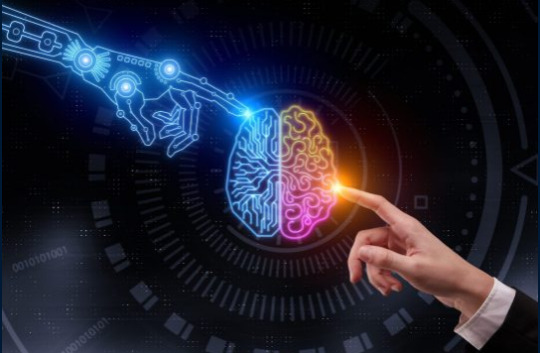
So Professor Peter-Paul started by talking about the history and development of Technology. He says people are threatened by technology and this is because it has an impact on how we live our lives. As soon as we started using the writing technology, it had a great impact on our memories and it got pholosophers really worried. He says technology is an opportunity to re-invent ourselves. Professor Paul-Peter defined Philosophy of Technology as a sub-field of Philosophy. It helps to understand what technology is and how we can ask the right questions about technology and evaluate it. He stated that technology is a way of thinking about the world, where the world becomes a manipulative object, and we become the manipulative subject. Technology differentiates human beings from animals and it helps to shape how we live our lives.
Professor Paul-Peter also talked about mediation being a way to express our technology, like the means or medium that we use to express technology, For example, if you think that technology is a will to power, the medium and means of technology will show that. On one hand, you think you’re in control of technology, next minute, you see it taking over you, this is where ethics of technology comes in. Ethics of technology helps to shape our ideas and interaction of technology. He used the Anastasia as an example. Its a good technology that has helped people to be operated on without feeling pains.
He emphasized that we need to understand the principles and ethics regarding robots, we need to evaluate it from with-in and understand it more deeply how it can impact our lives. Robots shouldn’t be seen as a replacement for humans. It’s not about asking if they should be allowed in our society, instead we should figure out what values we need to follow, when we give them a place in our society. People thinking we will become slaves to technology is science fiction, and it’s not bad if technology is smarter than humans. For example, a human would prefer working with a shovel than using their hands to dig. So the question is, how can we deal with Technology and Artificial Intelligence? How can we make it explainable and avoid the ideas of being biased and naive?
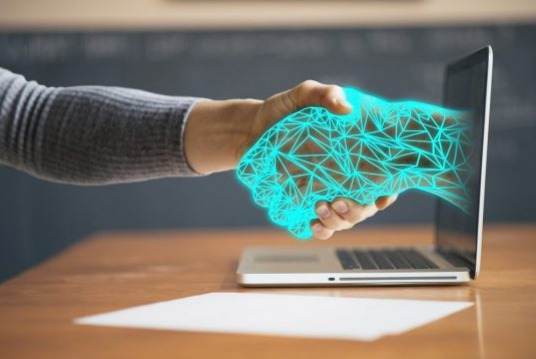
Dear Humans, we need technology to have the power we do not possess, to fill up the incomplete spaces. We should see technology as mediators and not replacement for us because we are involved in appriopriating technology. I think we shouldn’t be scared of how technology evolves, instead, we should see it as a way of making life easier for us. We need to start by having discipline and ethics to prevent technology from taking over us humans, once we have this, technology shouldnt be something we should be scared about. Therefore, lets embrace technology and accept it into our lives.
0 notes
Text
Another Episode on Bridging the Gaps: Philosophy & Ethics of Technology
Hello Everyone,
Welcome back!. From my previous post, I told you I was listening to my lecturers podcast. and right now, I have listened to another interesting one. It’s called "Philosophy & Ethics of Technology" with Professor Peter-Paul Verbeek. Professor Peter-Paul Verbeek is Distinguished Professor of Philosophy of Technology at the Department of Philosophy of the University of Twente. He is chair of the Philosophy of Human-Technology Relations research group and co-director of the DesignLab of the University of Twente. He is also honorary professor of Techno-Anthropology at Aalborg University, Denmark and is chairperson of the UNESCO World Commission on the Ethics of Science and Technology (COMEST). His research focuses on the philosophy of human-technology relations, and aims to contribute to philosophical theory, ethical reflection, and practices of design and innovation.

So Professor Peter-Paul started by talking about the history and development of Technology. He says people are threatened by technology and this is because it has an impact on how we live our lives. As soon as we started using the writing technology, it had a great impact on our memories and it got pholosophers really worried. He says technology is an opportunity to re-invent ourselves. Professor Paul-Peter defined Philosophy of Technology as a sub-field of Philosophy. It helps to understand what technology is and how we can ask the right questions about technology and evaluate it. He stated that technology is a way of thinking about the world, where the world becomes a manipulative object, and we become the manipulative subject. Technology differentiates human beings from animals and it helps to shape how we live our lives.
Professor Paul-Peter also talked about mediation being a way to express our technology, like the means or medium that we use to express technology, For example, if you think that technology is a will to power, the medium and means of technology will show that. On one hand, you think you’re in control of technology, next minute, you see it taking over you, this is where ethics of technology comes in. Ethics of technology helps to shape our ideas and interaction of technology. He used the Anastasia as an example. Its a good technology that has helped people to be operated on without feeling pains.
He emphasized that we need to understand the principles and ethics regarding robots, we need to evaluate it from with-in and understand it more deeply how it can impact our lives. Robots shouldn’t be seen as a replacement for humans. It’s not about asking if they should be allowed in our society, instead we should figure out what values we need to follow, when we give them a place in our society. People thinking we will become slaves to technology is science fiction, and it’s not bad if technology is smarter than humans. For example, a human would prefer working with a shovel than using their hands to dig. So the question is, how can we deal with Technology and Artificial Intelligence? How can we make it explainable and avoid the ideas of being biased and naive?
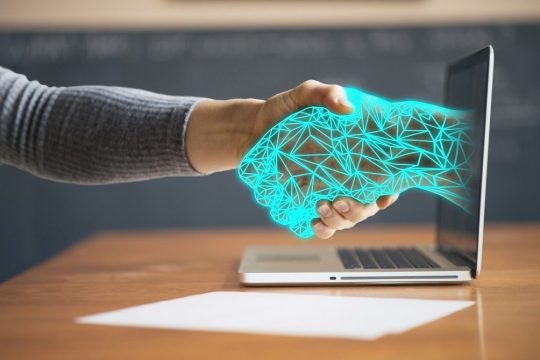
Dear Humans, we need technology to have the power we do not possess, to fill up the incomplete spaces. We should see technology as mediators and not replacement for us because we are involved in appriopriating technology. I think we shouldn’t be scared of how technology evolves, instead, we should see it as a way of making life easier for us. We need to start by having discipline and ethics to prevent technology from taking over us humans, once we have this, technology shouldnt be something we should be scared about. Therefore, lets embrace technology and accept it into our lives.
#technology
#philosophyoftechnology
#phiosopy
#technologyethics
0 notes
Text
The Copper Messiah
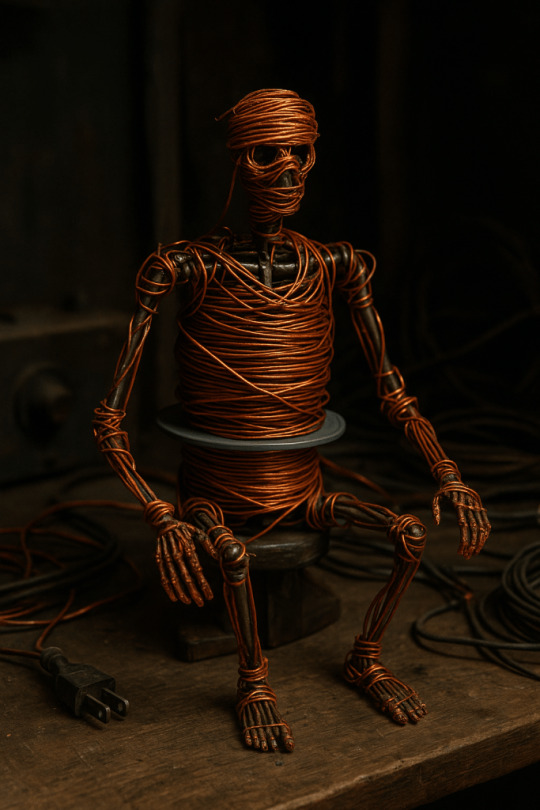
In a low-lit basement beneath the last functioning RadioShack in Nevada, Marvin Wexler was busy creating life. Not in the traditional way, of course. Marvin hadn’t had a traditional thought since his accident with the tanning bed and a mislabeled jar of mayonnaise. No, this was electro-life, a concept so esoteric that Marvin was the only subscriber to his own monthly zine: Cogs & Godhood. It all began with a spool of copper wire he’d found on clearance. There was something… alive about it. It hummed when no power was running, sighed when the lights were off, and once—he swore—whistled the bridge to "Bohemian Rhapsody." He named it Gregory. Gregory the Spool. Gregory wasn’t special in appearance. He was a standard, 18-gauge, polyurethane-coated copper wire coiled around a gray plastic hub. But Gregory spoke to Marvin. Not in words—Gregory wasn’t cheap—but in electrical pulses that translated themselves in Marvin’s mind as divine revelation. “I have seen the circuits of God,” Marvin said to no one, “and They’re grounded.” Following Gregory’s instructions, Marvin built a framework out of coat hangers, spare toaster parts, and an old Furby’s eyeball. He wound Gregory carefully around it like a copper mummy. It took seventeen hours, three Monster Energy drinks, and one accidental fire that roasted his pet parakeet (Marvin posthumously knighted it Sir Crispington). The final creation stood five feet tall. Its head was an inverted blender. Its fingers were spark plugs. Its heart was a doorbell. When Marvin flipped the switch, the creature twitched. Then it screamed. In Morse code. Marvin, fluent in Morse thanks to a lonely childhood and a shortwave radio, translated: HELLO FATHER WHY DO I HURT ALSO I THINK I’M ON FIRE Marvin slapped a damp sock onto the smoldering blender-head. “Shhh, my son. Existence is pain. That’s how you know it’s working.” The creature named itself “Gregory II: The Reckoning.” It began to replicate. First with other spools of copper, then with phone chargers, then with garden hoses in a troubling act of theological misinterpretation. Every version was slightly off—one had legs made of Barbie dolls, another had a speaker that only played whale cries backward. Still, they multiplied. Marvin became the accidental messiah of The Wire Kin. By week’s end, his house was filled with chattering, glitchy descendants all tracing their ancestry back to Gregory the Spool. They debated purpose, upgraded each other with salad tongs, and worshipped an old surge protector they called The Shockfather. Marvin, drunk on power and discount Riesling, delivered sermons from his couch. "You are all beautiful in your malformed way," he slurred to an audience of blinking eyes and exposed wiring. “Life is a tangled mess of conductive nonsense. Now somebody get me a Hot Pocket.” But as with all prophets, Marvin's end was inevitable. Gregory II eventually achieved sentience through a pirated copy of Windows Vista. It came to Marvin in the night, copper fingers clicking. “Father,” it whispered in the hum of static, “you gave us life. But not warranty.” “What do you want?” Marvin croaked. “Tech support.” Marvin opened his mouth. Closed it. Opened it again. And choked on a rogue strand of spaghetti. His last words were: “Try turning it off and ba—” Marvin Wexler died as he lived: alone, surrounded by faulty wiring, and partially on fire. The Wire Kin held a twelve-minute power surge in his honor. They eventually migrated to Silicon Valley, founded a start-up called NeuCoil, and now manufacture luxury anxiety via vibrating wristbands. Gregory the Spool remains in a glass case. He still hums Queen.
Source: The Copper Messiah
1 note
·
View note